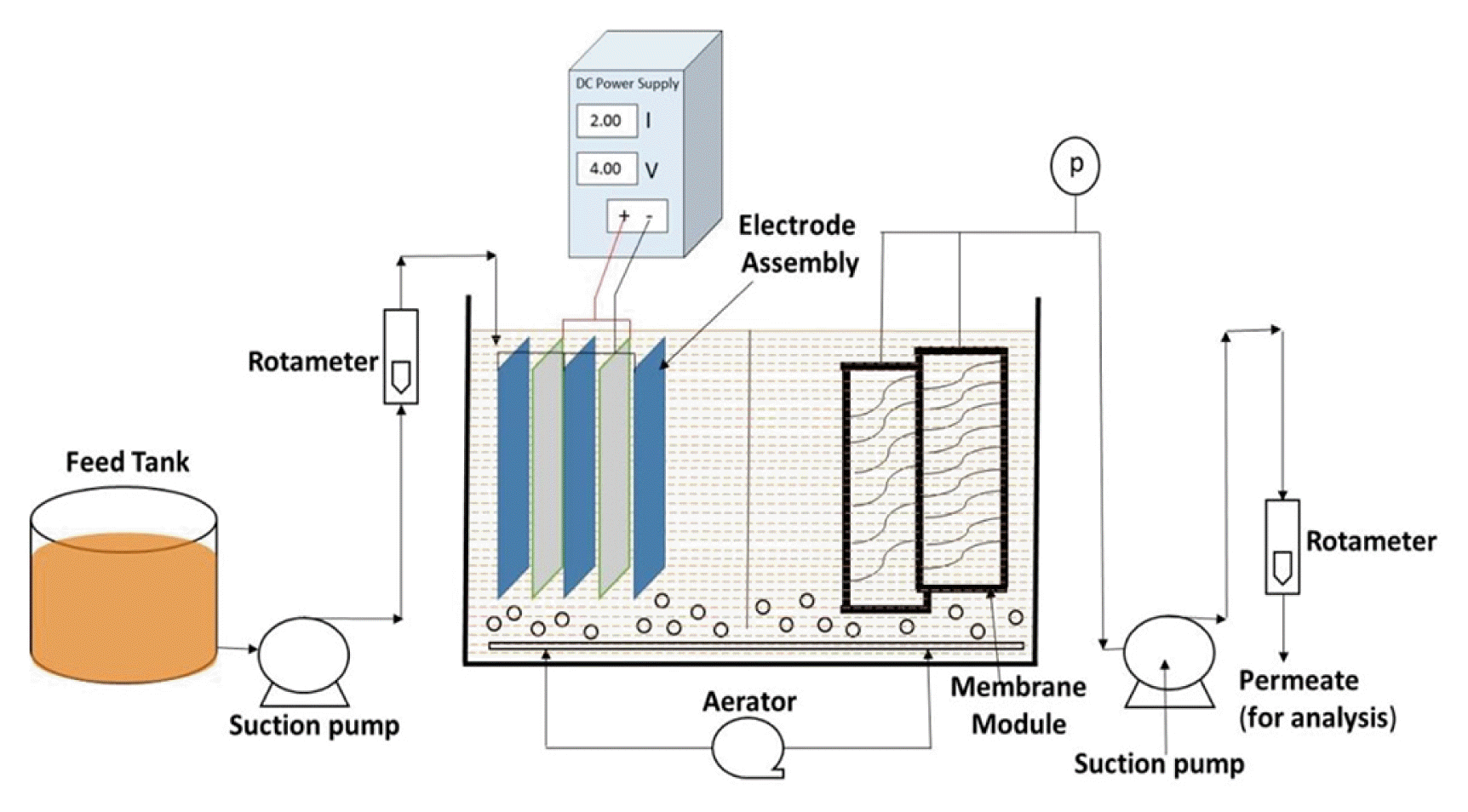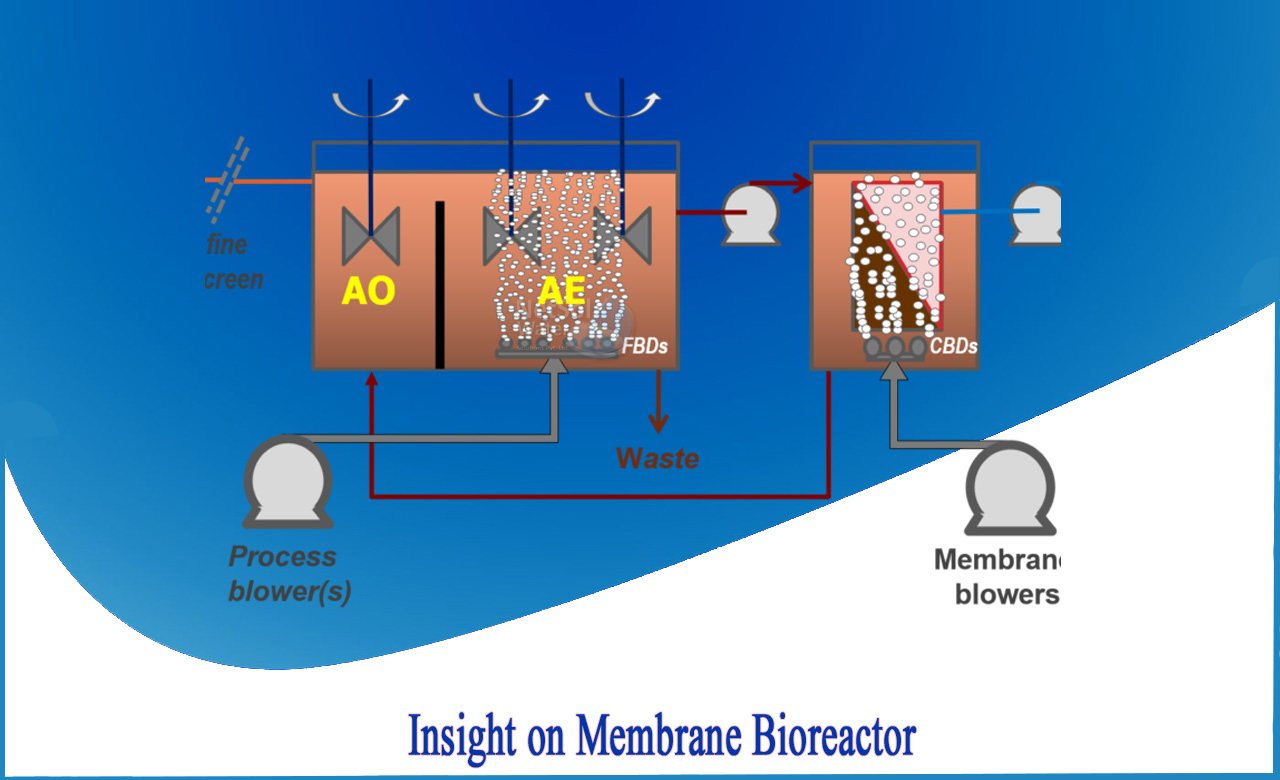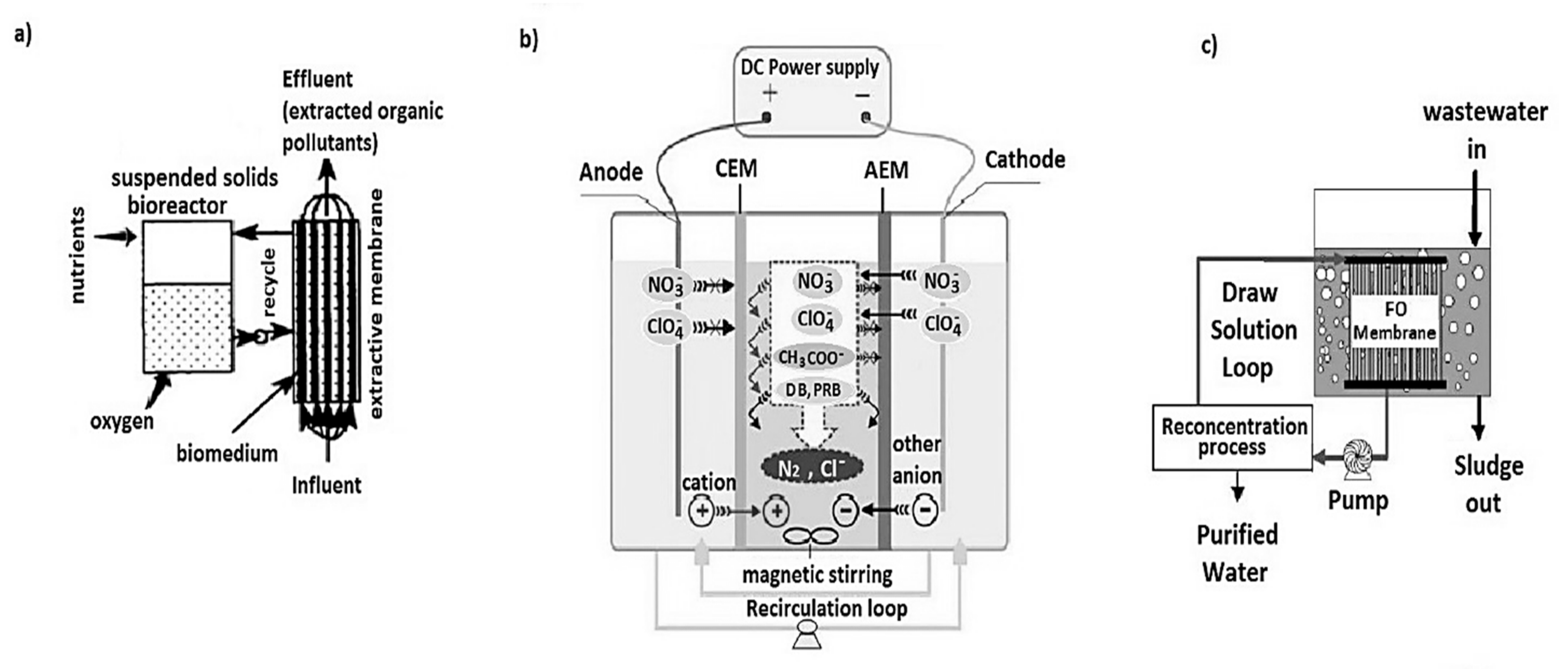The Advantages of Using a Membrane Bioreactor for Efficient Water Purification
The Advantages of Using a Membrane Bioreactor for Efficient Water Purification
Blog Article
How Membrane Layer Bioreactors Are Changing Water Filtration Systems
The development of membrane bioreactors (MBRs) represents a significant improvement in the area of water filtration, combining organic therapy procedures with cutting-edge membrane layer filtration technologies. As global water scarcity magnifies, the function of MBRs in assisting in safe and clean water reuse and lasting water administration ends up being progressively important.
Overview of Membrane Layer Bioreactors
Membrane layer bioreactors (MBRs) stand for a considerable development in water purification technology, as they combine biological therapy procedures with membrane filtration. This integration enhances the performance of wastewater therapy by using microorganisms to degrade natural toxins while all at once using semi-permeable membranes to separate cured water from suspended pathogens and solids.
The MBR system typically is composed of a biological activator where the microbial populace metabolizes contaminants, adhered to by a membrane purification system that preserves biomass and enables only tidy water to go through. This dual capability leads to higher effluent top quality contrasted to standard treatment approaches. MBRs can be operated in both set and constant flow settings, offering adaptability in design and application.
They additionally make it possible for the recuperation of water for reuse, thus contributing to water sustainability efforts. On the whole, MBRs are at the center of improving water treatment effectiveness and high quality, showcasing the possibility for cutting-edge solutions in ecological monitoring.
Benefits of MBR Technology
The integration of biological treatment with membrane purification offers numerous advantages for water purification processes. One of the main advantages of Membrane layer Bioreactor (MBR) modern technology is its capacity to efficiently remove both not natural and natural pollutants, causing high-quality effluent. The membranes act as a physical obstacle, stopping put on hold solids and virus from travelling through, which boosts the general security and integrity of cured water.
Furthermore, MBR systems need a smaller impact contrasted to standard therapy approaches, permitting extra reliable area application. This portable layout is especially beneficial in urban setups where land is restricted. MBRs also show functional versatility, accommodating differing influent high qualities and flow rates without significant efficiency deterioration.
Additionally, the procedure uses improved nutrient elimination abilities, particularly for nitrogen and phosphorus, which are critical for protecting against eutrophication in getting waters. The reduced sludge manufacturing associated with MBR modern technology likewise converts to reduce disposal costs, making it an affordable option over time - Membrane Bioreactor. Overall, the benefits of MBR technology setting it as a leading choice for sustainable and ingenious water purification systems, attending to both environmental and financial concerns
Applications in Water Filtration
Applications of Membrane Bioreactor (MBR) technology in water purification are impactful and diverse, resolving various therapy needs throughout multiple industries. MBRs effectively integrate organic treatment procedures with membrane filtering, making them perfect for local wastewater therapy, industrial effluent administration, and also drinkable water reuse campaigns.
In municipal settings, MBRs are progressively used to enhance the high quality of treated wastewater, enabling for conformity with rigid discharge laws and facilitating the recycling of water for watering and non-potable uses. Their compact design also makes them appropriate for metropolitan environments where area is limited.
Industrially, MBR innovation is used to treat process water and wastewater, particularly in industries such as food and drink, pharmaceuticals, and textiles. By efficiently eliminating pollutants and suspended solids, MBRs help markets lessen environmental impacts while recovering valuable sources from wastewater streams.
In Addition, MBRs are gaining grip in decentralized water therapy applications, where small systems can be deployed in remote areas or creating areas. This versatility allows neighborhoods to achieve sustainable water monitoring options, improving access to clean water while reducing dependence on traditional therapy approaches.
Case Researches and Success Stories

In an additional instance, a textile production facility in Bangladesh adopted MBR innovation to address its wastewater obstacles. The system decreased chemical oxygen need (COD) levels from 1,200 mg/L to less than 100 mg/L, therefore meeting regulative standards and dramatically reducing ecological effect.
The University of Cape Community's MBR installation has confirmed efficient in dealing with greywater for non-potable reuse on campus. This task not only preserves potable water however additionally acts as an instructional model for lasting methods.
Furthermore, a fish and shellfish handling plant in Norway utilized MBR modern technology to deal with effluents including high degrees of raw material, achieving over 90% contaminant elimination. These study emphasize MBR modern technology's flexibility and its crucial duty in enhancing water high quality throughout varied applications.
Future of Water Therapy Solutions
As global water deficiency and air pollution obstacles heighten, cutting-edge water therapy solutions are becoming progressively vital to guarantee sustainable access to clean water. The future of water therapy hinges on the assimilation of advanced modern technologies that enhance the effectiveness and efficiency of purification processes. Membrane bioreactors (MBRs) are at the leading edge of this evolution, combining biological treatment with membrane filtration to produce high-grade effluent appropriate for different applications.

Emerging trends such as source recuperation from wastewater, consisting of nutrients and power, will further transform therapy centers into eco-friendly hubs. Improvements in nanotechnology and membrane products guarantee boosted efficiency and longevity of filtration systems.

Verdict
In final thought, imp source membrane bioreactors stand for a considerable innovation in water filtration innovations, effectively integrating biological therapy with advanced membrane layer filtration. The various benefits, including boosted effluent high quality and reduced spatial demands, make MBRs specifically appropriate for city applications. Their function in safe and clean water reuse and sustainable water monitoring highlights their value in addressing worldwide water deficiency challenges. Proceeded r & d will certainly even more boost the efficacy and adoption of MBR modern technology, guaranteeing a durable future for water therapy services.
The development of membrane bioreactors (MBRs) represents a substantial innovation in the area of water purification, merging biological treatment processes with advanced membrane layer purification modern technologies. As international water deficiency magnifies, the role of MBRs in helping with drinkable water reuse discover here and sustainable water monitoring comes to be progressively vital. They likewise make it possible for the recovery of water for reuse, thus adding to water sustainability campaigns.As global water shortage and contamination challenges heighten, ingenious water treatment solutions are becoming significantly crucial to guarantee sustainable accessibility to tidy water. Their function in drinkable water reuse and sustainable water management highlights their relevance in resolving worldwide water shortage moved here difficulties.
Report this page